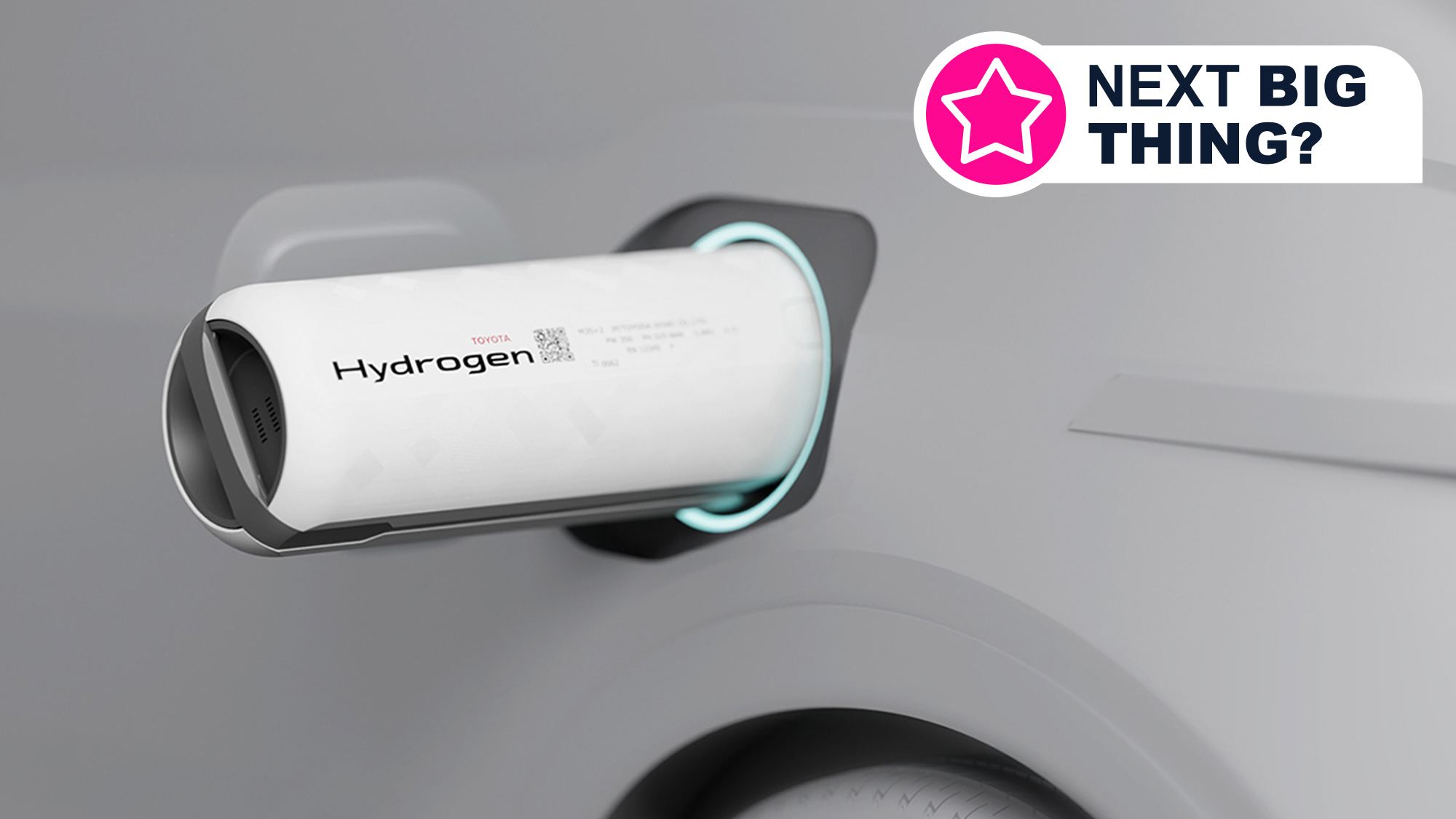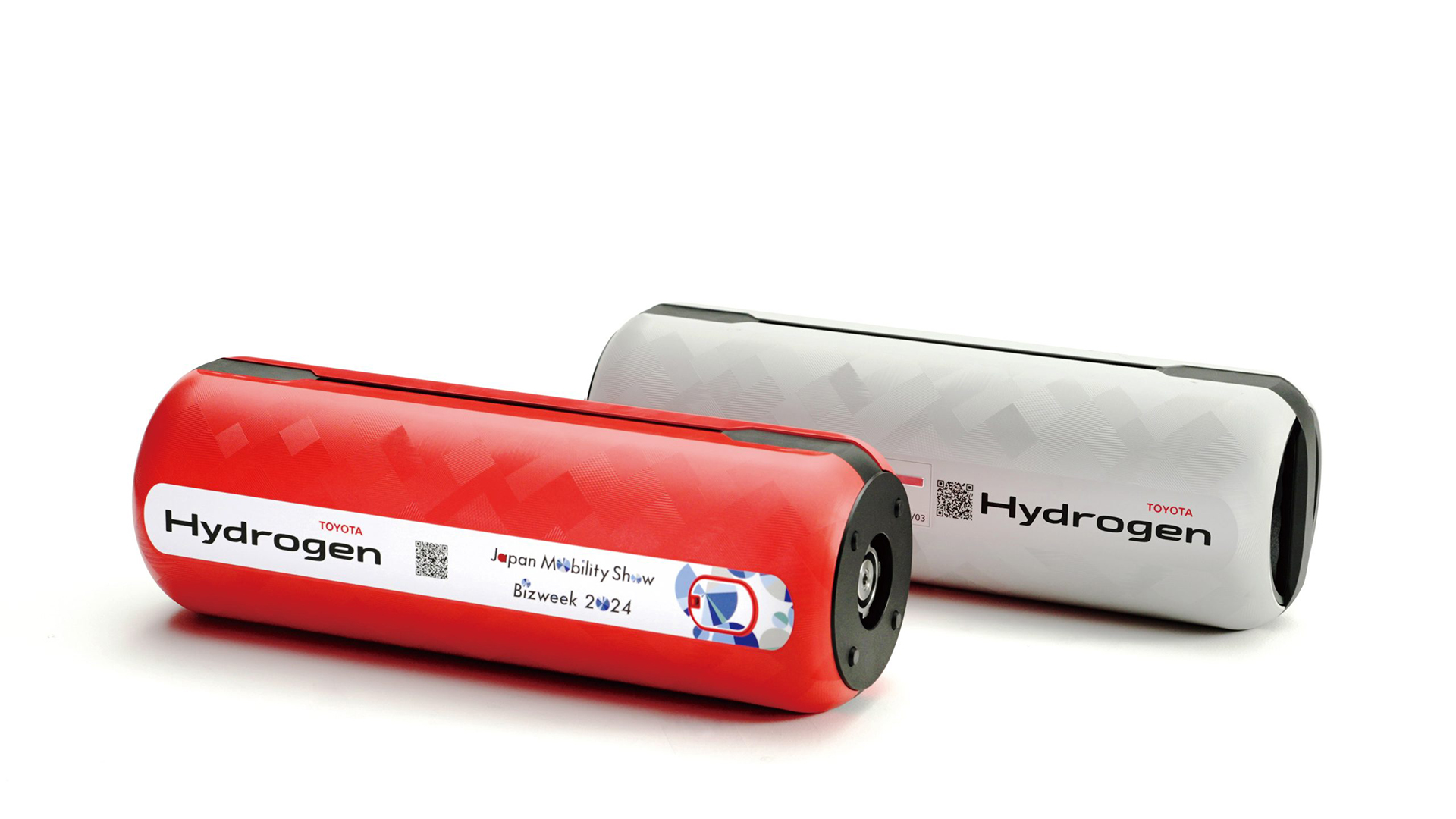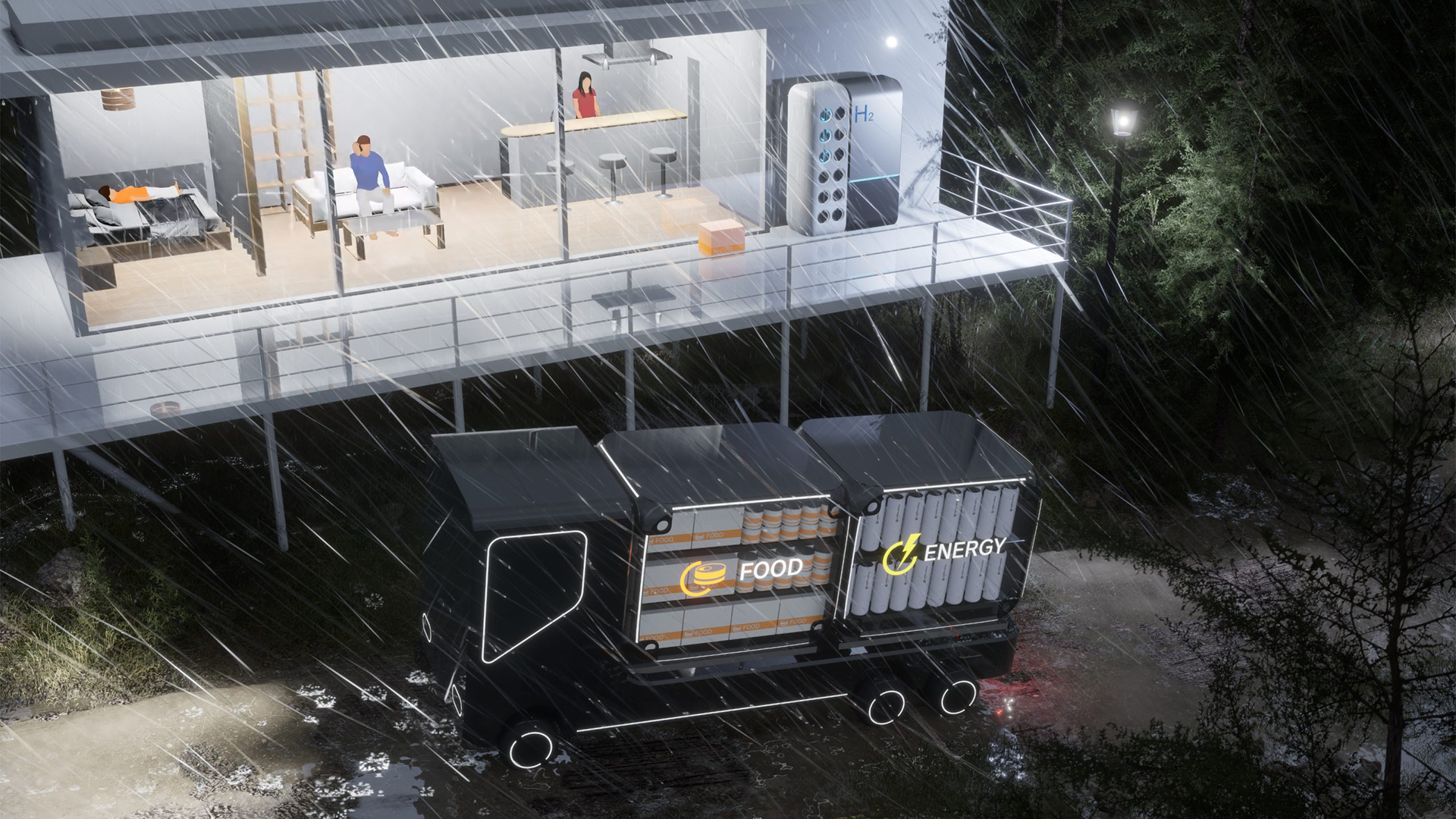Toyota's portable hydrogen cartridges look like giant AA batteries – and could spell the end of lengthy EV charging
They could also power your home, too

Toyota is showcasing a series of sustainable developments at the Japan Mobility Bizweek later this month – including its vision of a portable hydrogen cartridge future, which could apparently provide 'swappable' power for next-gen hydrogen fuel cell electric vehicles (FCEVs).
Originally a project of Toyota’s mobility technology subsidiary Woven (formerly Woven Planet), the team produced a working prototype of a hydrogen cartridge back in 2022 but has since developed the idea further… and appears to be running with it.
The latest cartridges are lighter and easier to transport, with Toyota claiming the current iteration has been developed with the experience the company has gained in reducing the size and weight of the hydrogen tanks used in its fuel cell electric vehicles.
The concept involves hydrogen cartridges that are compact and light enough to be carried by hand, with one model wearing what looks like an oversized AA battery on his back in a specially design backpack.

Put simply, the cartridges would allow fuel cell electric vehicle drivers to swap out their power source when hydrogen levels run low, rather than having to refuel at a station like you typically would with a fossil fuel-powered car.
But Toyota also feels that these refillable and renewable cartridges could be used in a multitude of situations, such as to generate electricity in a fuel cell to power the home or even providing hydrogen to burn for cooking.
In fact, Toyota and the Rinnai Corporation are exhibiting a stove at Japan Mobility Bizweek that does just that. Similarly, in emergency situations, the hydrogen cartridge could be removed from the car and used to power any applicable device in the case of a blackout, for example.
Get daily insight, inspiration and deals in your inbox
Sign up for breaking news, reviews, opinion, top tech deals, and more.
Although just a concept for now, Toyota feels that these lightweight, portable cartridges could create a more affordable and more convenient way to deliver hydrogen to where people live and work, without the need to lay a huge network of pipes.
Analysis: Is hydrogen key to a carbon neutral future?

With advances in battery technology, the next generation of hydrogen fuel cell passenger cars, such as Renault's recent Emblème concept, could well boast more energy dense battery packs, so can harness the power of much smaller hydrogen tanks to help zero emissions vehicles travel further without lengthy charging stops.
Toyota’s vision of portable hydrogen cartridges has the potential to power a multitude of vehicles and everyday objects, from smaller capacity motorcycles to cars and even home appliances.
The company’s concept would see fresh hydrogen cartridges delivered, alongside food and other items, with the spent cartridges retrieved and refilled. As a result, Toyota says it is currently looking to find matches with technologies and ideas from companies and startups in different fields, including both service provision and the development and sale of devices using the cartridges.
Although much debated in the automotive space, hydrogen is a flexible fuel source, with the ability to generate electricity in fuel cells or used as a combustion fuel.
It emits nothing in the way of CO2 when used (water is the only byproduct), and it can help contribute to net zero targets if it is produced using renewable energy sources, such as wind and solar.
With demand waning globally for EVs, it feels as if hydrogen is back on the agenda, with the likes of Hyundai, BMW and Honda all exploring ways of making the technology commercially viable.
You might also like

Leon has been navigating a world where automotive and tech collide for almost 20 years, reporting on everything from in-car entertainment to robotised manufacturing plants. Currently, EVs are the focus of his attentions, but give it a few years and it will be electric vertical take-off and landing craft. Outside of work hours, he can be found tinkering with distinctly analogue motorcycles, because electric motors are no replacement for an old Honda inline four.